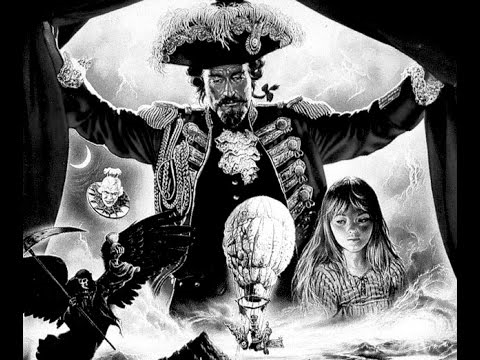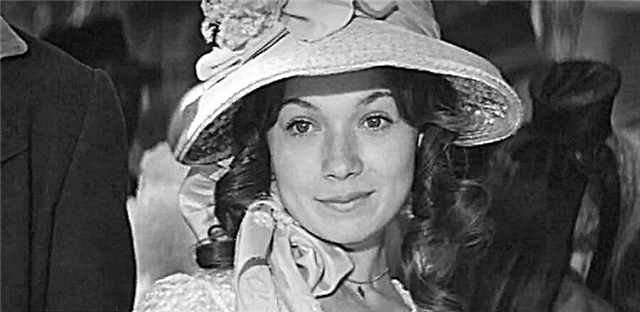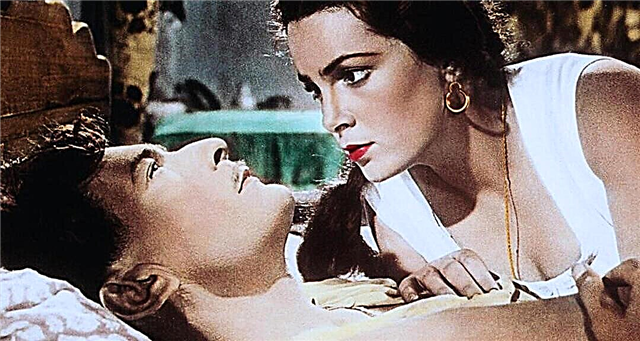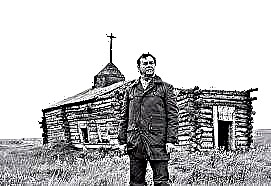Eighteen-year-old Caleb Williams, smart for years and well-read, after the death of his parents, poor peasants who lived in the possessions of a wealthy squire Ferdinand Foklend, becomes his secretary.
Fokland's strange behavior, which leads a secluded lifestyle and often falls into gloomy thoughtfulness, followed by outbursts of anger, leads the young man to the idea that some kind of mystery torments his master. According to Caleb himself, the main driving force that guided his whole life was always curiosity. The young man’s inquisitive mind prompts him to get to the bottom of the motive causes and hidden motives in everything, and he seeks explanation for the fact that Fokland is tormented in this way.
Collins, the manager of the estate, at the request of Caleb, tells him the tragic story of his master.
In his youth, Fokland was inspired by the ambitious romantic dreams of heroic deeds. Traveling in Italy, he repeatedly proved his courage and nobility. Returning a few years later to England, he settled in his family estate. In the person of the landowner Barnaba Tyrrel, his closest neighbor. Fokland found a mortal enemy.
Tyrrel, a man of remarkable physical strength, rude, tyrannical and unbalanced, used to reign supreme in local society: no one dared to argue against him in anything. With the arrival of Fokland, who not only favorably differed from Tyrred in intelligence and courtesy, but, despite the lack of physical strength, did not yield to him in courage, the situation changed dramatically: Fokland became the soul of society. Wanting to put an end to the senseless enmity on the part of Tyrrel and fearing a tragic outcome, Fokland made attempts to get closer to him, but he even more hated his opponent. To take revenge on Fokland, Tyrrel decided to marry his poor relative, Miss Emily Melville, who lived in his house, for Grimes, one of his hangers-on. But Emily refused. The girl’s heart already belonged to Auckland, who saved her from imminent death during a fire in the village where she was visiting. When Grimes, at the instigation of Tyrrel, tried to dishonor her. Fokland again saved the girl, exacerbating the fury of his gate. Then Tyrrel put Emily in jail on the absurd charge that she owed him a large sum of money. In prison, an unfortunate girl whose Health was undermined by a nervous breakdown due to the constant harassment of her cousin, died, despite Fokland's best efforts to bring her back to life.
After Emily’s death, everyone turned away from Tyrred, and he, insulted and humiliated, but not at all repenting of his atrocities, appeared uninvited to a public meeting and brutally beat Fokland with everyone. Tyrrel was pushed out the door, Fokland soon left the meeting, and after some time nearby they found Tyrell's bloodied corpse. The trial, before which Fockland delivered a brilliant speech, unconditionally found him not guilty of murder. Hawkins, the former tenant of Tyrrel, was deemed responsible for this death. Hawkins had reasons to hate his former master, who, out of sheer tyranny, brought him to poverty and hid his son in prison. Evidence was found that testified against Hawkins, and he was hanged with his son, who escaped from prison just before Tyrrel’s murder.
This is where Collins ends his story. These events, he tells the young Caleb, so influenced Fokland that he changed dramatically: he ceased to be in society, became a stern hermit. Despite the kindness to others, he is always cold and restrained, and his usual gloomy mood is sometimes replaced by fits of rage, and then he looks like a madman.
The story of the manager makes such a strong impression on a young man gifted with a passionate imagination that he constantly reflects on the story of his master. Carefully analyzing all its details, he concludes that Hawkins could not be Tyrrel's killer. Hawkins' letter to Fokland, accidentally discovered by Caleb, who sympathized with the poor tenant and tried to save him from Tyrrel's persecution, turns speculation into firm confidence. Is the killer Fockland?
Caleb begins to watch him, noticing his slightest spiritual movements. Talking with Fokland on abstract topics, the young man tries to direct the conversation in the direction he needs in the hope that the Fokland will give itself out with an imprudent word or gesture. Caleb’s desire to learn the secret of his master at all costs turns into a real mania, he loses all caution and leads a dangerous game almost openly with his master: with finely thought out questions and supposedly random hints, he drives Fokland almost to madness.
Finally, Fokland admits to Caleb that he, Fokland, Tyrrel's true killer, caused the death of innocently convicted Hawkins. But Fockland is not broken by defeat. He warns the young man that he will be paid for his insatiable curiosity: he will not drive him out of service, but will always hate him, and if Caleb shares a secret with someone, let him blame himself.
The young man realizes that he actually became a prisoner of Fokland. During his service, Caleb grew spiritually and formed as a person, albeit at a high price. Engaged in constant monitoring and analysis of Fokland’s behavior, the young man learned to control his feelings and will, his mind became sharp and penetrating, but he completely lost the ease and cheerfulness of his youth. Worshiping the high virtues of Fokland, the character and mindset of which he thoroughly studied, Caleb realizes how dangerous can be a person who was forced to confess to a crime.
Caleb and Fockland seemed to swap places. Now Fokland jealously watches every step of Caleb, and he begins to be burdened by the lack of freedom. Valentin Forster, Fokdend’s elder maternal brother, is visiting the estate. Forster sympathizes with the young man, and Caleb hints to him that he is burdened by the service of his master.
A young man asks Forster for intercession in case of persecution by Fokland. But he realizes that the young man wants to slip out from under his power, and demands that Caleb stop all communication with Forster. He backs up his claim with threats, and Caleb decides to flee. Forster sends a servant after him with a letter in which he convinces him to return to his brother's estate. Caleb returns, but the cunning Fockland accuses him of robbing him of a large sum of money. In the presence of Forster and the servants, Fockland gives false evidence of Caleb's guilt, and the young man is taken to prison. He tries to escape, but only the second attempt returns him freedom.
Caleb nearly dies at the hands of the robbers, but their leader, Raymond, who is no stranger to nobility, saves him and takes it under his protection. The evil and greedy Jains, who robbed and wounded the defenseless Caleb, Raymond expels from the gang. The young man lives among the robbers in the thicket of the forest, in the old ruins, where the farm is a terrible old woman, whom the locals are afraid and consider a witch. She hates Caleb, because because of him they drove out Jains, who used her location. The young man does not participate in gang raids, on the contrary, he exhorts the robbers and their leader to quit theft and set foot on the fair path.
Meanwhile, leaflets describing the appearance of the dangerous criminal Caleb Williams are being circulated in the district: a reward of one hundred guineas has been appointed for his capture. The young man realizes that the old woman, who has already encroached on his life, wants to give him to the authorities, and leaves the gang. He disguises himself as a pauper and tries to sail to Ireland, but two detectives grab him, mistakenly mistaking him for one of the scammers who robbed the mail, and Caleb nearly went to jail again.
The young man goes to London. First, he constantly changes clothes and carefully changes his appearance. Then he pretends to be a poor and crippled Jewish youth (for this Caleb wears an artificial hump under his jacket) and begins to make a living by literary work. However, he is tracked down by Jains, who was a detective before joining the robber gang, and after exile from it returned to his former craft. The young man falls into the same prison from which he fled. In desperation, he tells the judges that he is not guilty of anything, and his former master, Fokland, deliberately accused him of theft. For the first time in his ordeal, Caleb announces that Fokland is a criminal and a murderer. But the judges are afraid that the poor man decides to blame the rich gentleman, and refuse to listen to the testimony of the young man. However, when neither Fockland nor Forster are at the hearing of the case of Caleb Williams, the young man is released.
Fokland, who, with the help of the Jains he hired for a long time, followed Caleb's every step, offers him a deal: the young man must sign a paper assuring that Fokland is innocent of the murder of Tyrrel, and then Fokland will leave the young man alone. But Caleb, driven to despair by the persecution of his former master, nevertheless refuses indignantly, not wanting to become an instrument of injustice. To the amazement of the young man, Fokland does not try to put him in jail again and even transfers money to him through the servant.
Caleb leaves for Wells and lives in a small town where he fixes watches and teaches mathematics. However, here, too, Fokland's revenge catches up with him: suddenly and without any explanation, all of Caleb's friends turn away from him, and he remains without work.
Caleb leaves Wells in order to leave for Holland, but Jains tracks him down and reports that Fokland will resort to extreme measures if the young man tries to leave England. Caleb wanders around the country, nowhere finding shelter. Finally, he makes a decision: the world must learn about his ordeals and the terrible truth about their main culprit. The young man describes in detail the history of his misadventures and arrives in the city where Fokland lives. He comes to the judge, calls himself and demands to institute proceedings against his former master, who committed the murder. The judge reluctantly agrees to conduct a private investigation in the presence of Fokland and several gentlemen.
Caleb delivers a passionate speech in which he praises Fokland's nobility and mind, and reproaches himself for not opening his heart to him in time, Fokland is a murderer, but he committed a crime, blindly avenging his humiliation. Continuing to live for the ghost of a lost honor, Fokland continued to do good and proved that he deserves universal love and respect, and he, Caleb, is worthy only of contempt for unwittingly accusing such a beautiful person who was forced to pursue his former servant.
Fockland is shocked. He admits that Caleb triumphed in this unequal struggle by displaying a nobility that he, Fokland, unfortunately did not recognize in him before. Fockland laments that because of his excessive suspicion, he did not appreciate the young man. Fockland confesses his guilt to those present and dies in three days. Caleb in despair: Fokland's exposure did not bring him the desired deliverance from suffering. The young man considers himself a murderer of Fokland and will henceforth be tormented by remorse. Cursing human society with bitterness, Caleb in his notes says that it is “a swampy and rotten soil from which every noble shoot, growing up, absorbs poison”. Caleb ends his notes with Fokland's apology, expressing the hope that thanks to them the story of this noble soul will be understood to the end.


 Moby Dick
Moby Dick








